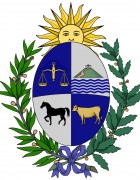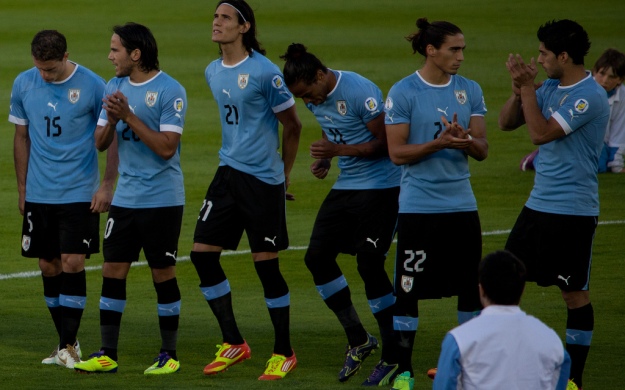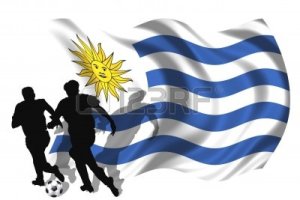As in other colonized nations, football was brought to the nation by the colonizing forces, both in the form of missionaries and conquistadores, who brought the sport as a reminder of home and as a distraction from the difficulties faced abroad. European immigrants, who continued to relocate to Uruguay after it gained its independence, helped to ensure that football maintained popularity throughout its history. In fact, as football emerged during early 20th century as an international phenomenon, Uruguay was at the center of the competition and prestige. On May 16th, 1901, the first international game ever to be played outside of the United Kingdom took place in Montevideo. In this game, Uruguay beat Argentina, beginning the long-standing football rivalry between the two neighboring countries. It is a ironic that this rivalry would be one of the most heated in the region, even though Argentina had helped Uruguay politically and aided its own troops into fighting the European colonial powers. It seems that even that favor was not enough to quell the Uruguayan fan’s passion for the sport.
In 1913, the Uruguayan national team was taken over by Italian immigrants and officially became known as Peñarol. The new Italian coaches added new, European techniques to the Uruguayan’s game, and added a new perspective very unique to Uruguay’s early team. Having foreigners, albeit Europeans, as coaches, the Uruguayan teams did not struggle with diversity as did many of their counterparts around the same time. Instead, Uruguay’s football teams became some of the most diverse in the world. When, in 1916, the first South American championship game was held between Chile and Uruguay, the Uruguayans easily won, 4-0. More remarkably, however, was the diversity of Uruguay’s lineup, as two of their starters, Isabelino Grádin and Juan Delgado, were both black. At this point, Uruguay was the only country in the world to have black players on its national team. The Chilean team went so far as to accuse Uruguay of wrongfully allowing these two descendants of slaves to play. The Chileans only apologized after Uruguay threatened to take the issue to the diplomatic level.
When the Uruguayan football team invaded the Paris Olympics of 1924, it continued to stun European football fans by winning gold and demolishing the other teams. Uruguay then went on to win the gold in the next Olympics, as well, in Holland in 1928. This time, Uruguay truly proved to the other teams, some of which represented countries that had once held power in Uruguay, that it “was not a mistake”. Community that even a small country can produce amazing talent and skill.The star of these Olympic games was José Leandro Andrade, the son of a former slave and the first black footballer in the Olympic games. Andrade not only led Uruguay to international football prestige, but fought many racial prejudices with his skill on the pitch.
After winning these two Olympic titles, Uruguay was the natural choice to host the first World Cup in 1930. This set of games is often thought of as Uruguay’s golden era of football, as the small country defeated Argentina, its biggest rival, 4-2 in the final game. Political revolt would strike three years later, forcing Uruguay into a stretch of civil unrest that kept it from another World Cup until 1950. Yet Uruguay will forever hold the honor as the first best team in the world, at least with the FIFA World Cup as the determining factor.


